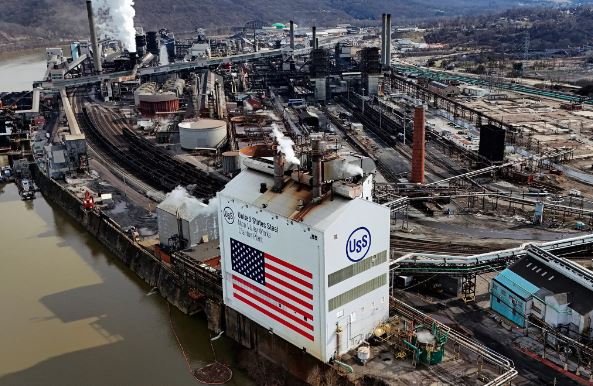President Biden is preparing to block an attempt by Japan’s Nippon Steel to acquire U.S. Steel, citing national security concerns, according to sources familiar with the matter. This decision could effectively end a $15 billion merger proposal that has been entangled in U.S. election-year politics, potentially straining relations with Japan, a key U.S. ally in East Asia.
For months, the Committee on Foreign Investment in the United States (CFIUS) has been investigating the merger for potential risks to national security. This committee, comprising officials from key departments such as State, Defense, and Homeland Security, is led by Treasury Secretary Janet Yellen. Recently, CFIUS sent a letter to U.S. Steel highlighting concerns about the deal.
Despite months of scrutiny, President Biden has yet to receive a formal recommendation from CFIUS. However, the Biden administration is expected to intervene before the November election. Both Biden and former President Donald Trump, the Republican presidential nominee, have expressed opposition to the sale, with Biden saying earlier this year that U.S. Steel should remain American-owned. Vice President Kamala Harris also echoed this sentiment, reinforcing the deal’s political significance.
Lawmakers from steel-producing states like Pennsylvania and Ohio have voiced opposition to the takeover, citing concerns about the potential for job losses and reduced domestic production. The United Steelworkers union has been a vocal opponent, and with Pennsylvania being a swing state in the upcoming election, the merger has become a pivotal issue.
In recent days, U.S. Steel shares dropped by 20% following reports that the Biden administration might block the merger. The company has insisted that it sees no national security threat from the transaction and has vowed to explore all legal options to ensure the deal goes through. Nippon Steel, on its part, maintains that the merger would bolster the U.S. steel industry, emphasizing that it had received no official updates regarding the CFIUS process.
The deal, announced in December 2023, has sparked a broader debate about foreign investment in critical U.S. industries. Critics of the deal argue that selling a key steel producer to a foreign entity, even a U.S. ally like Japan, poses too many risks. Supporters, however, claim that the merger would strengthen U.S. Steel’s global competitiveness.
Notably, U.S. Steel rejected a $7.3 billion bid from Ohio-based Cleveland-Cliffs, which had the backing of the steelworkers’ union. Cleveland-Cliffs has indicated its continued interest in acquiring U.S. Steel if the Nippon deal fails.
While U.S. Steel has warned of potential job cuts if the deal is blocked, Senator John Fetterman from Pennsylvania has criticized the company’s executives, siding with the steelworkers’ union against the deal.
Blocking the transaction could have broader consequences for U.S.-Japan relations and the U.S. reputation for open markets. Legal experts warn that politicizing foreign direct investment (FDI) reviews could damage America’s standing in international trade. Meanwhile, former Trump administration officials, including Mike Pompeo and Wilbur Ross, have expressed support for the deal, arguing that there are no genuine national security risks involved.

